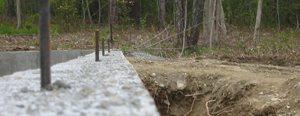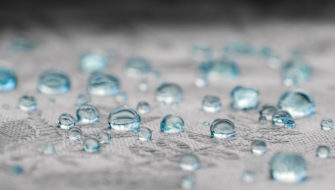Category
- Concrete Best Practices

Photo credit: Ed G http://www.flickr.com/photos/skazama/12725407/
Besides being time consuming, backfilling a concrete foundation can also lead to structural damage. If the concrete has not been given enough time to set, the concrete walls can fail in a number of ways:
1) Cracks in the foundation wall can appear, due to the weight of the backfill overloading the abilities of the young (green) concrete
2) Pressure from the backfill can cause the walls to bow in the center, and lead to cracking on the inside of the walls
3) If using an external waterproofing membrane, the membrane can be more likely to leak due to the damaged concrete
Here are a few tips on Backfilling Best Practices:
- Using an integral waterproofing system (such as Krystol Internal Membrane), instead of an externally applied sheet or liquid membrane, reduces the need for most of the backfilling around the foundation.
- Let your newly poured concrete walls set for at least seven days (in good weather), and even longer in cold weather
- Use quality dirt or gravel, free of organic materials (which will decompose, causing uneven settlement issues), and foreign objects (which can tear a waterproofing membrane)
- Place the backfill carefully. Filling too quickly can put excessive strain on the concrete, causing cracks.



